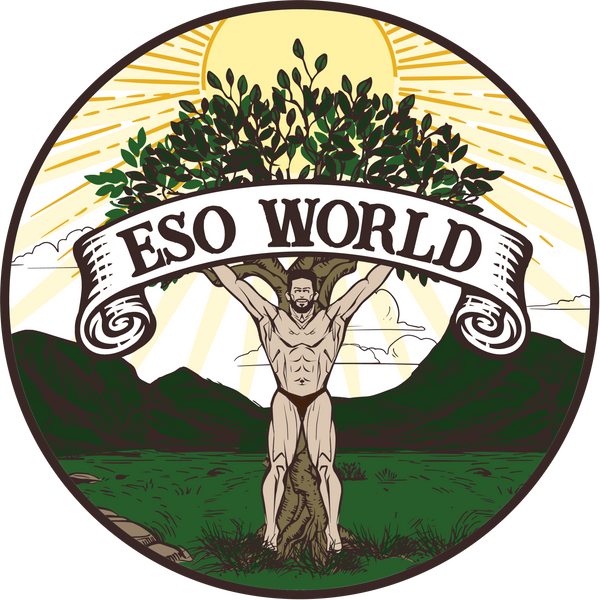In today's world, where synthetic fabrics dominate our wardrobes, it's easy to forget the natural alternatives that offer both comfort and health benefits. At Eso World, we champion organic cotton, and for good reason. Let’s delve into what makes organic cotton a superior choice for your well-being and how it connects us to a more natural way of living.
The Essence of Organic Cotton
Organic cotton is more than just a fabric; it’s a return to the basics. Imagine wearing something that’s as pure as the air after a rainstorm, something that resonates with the simplicity of nature. This cotton is cultivated without synthetic pesticides and fertilizers, using methods that preserve the integrity of the soil and the plant. The process starts with non-GMO seeds planted in soil enriched by natural fertilizers like compost and manure. This not only protects the soil but also ensures that no toxic residues cling to the cotton fibers.
A study by the National Academies Press highlights how these natural farming methods significantly reduce the presence of harmful chemicals in the final product, making it safer for our skin and overall health 3.
Health Risks of Conventional Cotton
The journey of conventional cotton is fraught with chemical exposure. Synthetic pesticides and fertilizers used in its cultivation have been linked to severe health issues. For example, glyphosate, a common pesticide, is notorious for its potential to disrupt endocrine functions, leading to hormonal imbalances and even cancer. The University of Southern Maine provides an insightful look into the public health risks associated with synthetic fertilizers, underscoring the dangers that conventional cotton farming poses to both farmers and consumers 1.
Chemical Residues and Skin Health
Our skin is our largest organ, constantly interacting with the environment. Conventional cotton fabrics, often treated with chemicals like formaldehyde, azo dyes, and perfluorinated compounds (PFCs) to make them wrinkle-free or stain-resistant, can cause skin irritations and allergic reactions. A study from Columbia University highlights the prevalence of dermatitis caused by these chemical residues, emphasizing the need for safer alternatives 4.
Wearing organic cotton, free from these harsh chemicals, can prevent such reactions. It’s hypoallergenic and gentle, ideal for those with sensitive skin. It’s like wrapping yourself in a piece of nature, allowing your skin to breathe and function without interference.
Breathability and Comfort
One of the standout features of organic cotton is its breathability. Unlike synthetic fabrics such as polyester and spandex, which trap heat and moisture, organic cotton allows air to circulate, keeping you cool and dry. This breathability is crucial for maintaining skin health, as trapped heat and moisture can lead to bacterial growth, causing unpleasant odors and infections. Think about our ancestors, who roamed the earth in breathable natural fibers. They weren't confined to the distress of unbreathable, moisture-trapping clothing. Their attire allowed them to remain comfortable and healthy, in sync with the rhythms of nature. A study by Brigham Young University explores the benefits of natural fibers in regulating body temperature and promoting skin health, highlighting how organic cotton aligns with our natural physiological needs 9.
Psychological Comfort
There’s more to comfort than just the physical aspect. Knowing that your clothes are free from harmful substances can reduce stress and anxiety, promoting a sense of well-being. The University of Wisconsin-Madison conducted a study exploring the psychological impact of wearing natural, organic clothing. The findings suggest that individuals feel more relaxed and at ease when they are confident that their clothing is safe and free from toxins 10.
This psychological comfort stems from our deep connection to nature. Wearing organic cotton, with its natural purity, resonates with our innate desire for simplicity and authenticity.
Endocrine Disruptors and Health Risks
Synthetic fabrics are often treated with endocrine-disrupting chemicals like phthalates and bisphenol A (BPA). These substances can leach into the skin, interfering with the body’s hormonal balance. A study by the University of Washington found significant links between contaminated diets and exposure to phthalates and BPA, which are also present in synthetic fabrics 7.
These endocrine disruptors are associated with various health problems, including reproductive issues and developmental problems in children. The U.S. Fish and Wildlife Service study provides further evidence on the broader ecological and human health impacts of these chemicals 6.
The GOTS Certification
At Eso World, we are committed to ensuring the highest quality for our organic cotton products. That’s why all our organic cotton is GOTS certified. This certification guarantees that our cotton meets stringent standards of organic farming and ethical production, ensuring that you receive a product that is both pure and responsibly made (hyperlink here).
A Return to Nature
Choosing organic cotton is like taking a step back to simpler times when our choices were in harmony with nature. Our ancestors thrived in natural fibers, understanding the body’s needs better than we often do today. By opting for organic cotton, you’re making a choice that honors this tradition, valuing purity and natural harmony.
In conclusion, organic cotton offers numerous health benefits, from reducing exposure to harmful chemicals to providing unparalleled comfort. At Eso World, we are dedicated to offering you the best of nature, ensuring that your wardrobe is not just stylish but also a sanctuary of health and well-being.
References
- Guatemala's Green Revolution: Synthetic Fertilizer, Public Health, and the Politics of Poverty - University of Southern Maine
- Quality of Agricultural Produce: Consumer Preferences and Acceptance - Rutgers University
- Ecologically Based Pest Management: New Solutions for a New Century - National Academies Press
- Women in Service and Textile Industries - Columbia University
- Endocrine Disrupting Chemicals – Overview - Michigan State University
- Ova-Pollution in the Potomac: Egg-Bearing Male Bass and Implications for Human and Ecological Health - U.S. Fish and Wildlife Service
- Contaminated Diet Contributes to Phthalate and Bisphenol A Exposure - University of Washington
- ETX 298 Summer/Fall 2014 - UC Davis
- Looking Good, Feeling Good, Doing Good? - University of Wisconsin-Madison








































